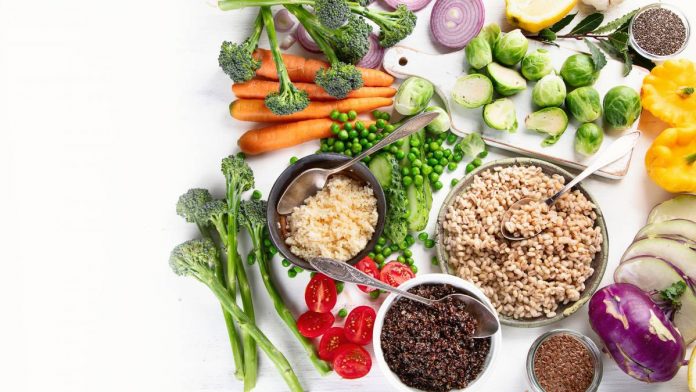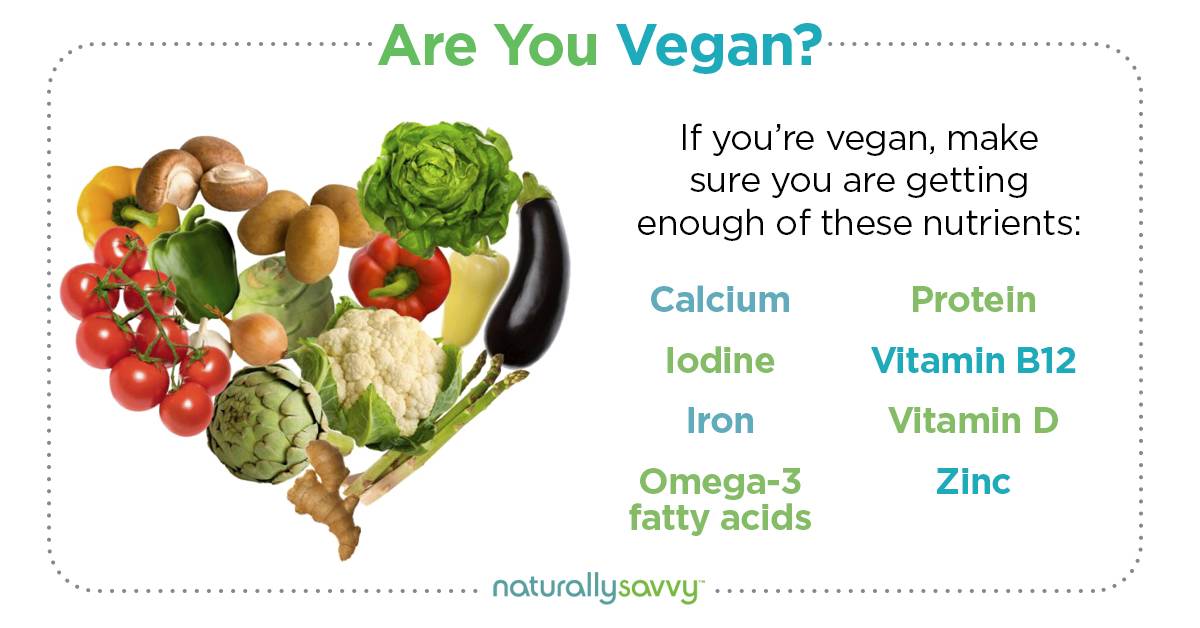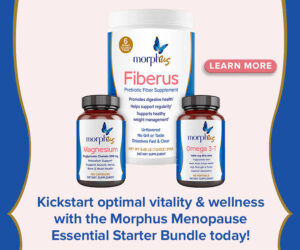
Ensuring you get all the nutrients you need is critical for overall health for everyone, regardless of age and whether you follow a keto, Mediterranean, paleo, vegan, vegetarian, or another eating style. It can be challenging to meet your nutritional needs because of numerous factors, ranging from each person’s unique biological makeup to the presence of health issues, use of medications, exposure to stress (and how we handle it), environmental pollutants, and food quality, and more.
Whether you have been following a vegan lifestyle for a long time, are new to the game, or are thinking about making the transition to a totally plant-based way of eating, this article can provide you with some helpful tips. The choice to avoid all animal foods from your diet has become much easier in today’s world because of the growing number of vegan food choices in the marketplace, many of which are in conventional grocery stores. These are in addition to the wealth of non-animal-based foods that have been at our fingertips for years, millennia in many cases.
Vegans and nutritional issues
People who follow a vegan lifestyle make a conscious effort to avoid all animal-based foods, whether for ethical, health and/or environmental reasons. (This may or may not include honey for some vegans.) While it is true vegans may be at greater risk of not getting enough of certain nutrients in their diet because they don’t consume animal foods, nutritional inadequacies and deficiencies are found in virtually everyone.
Consider, for example, that approximately 5 percent of people in the United States define themselves as vegan, according to the Statista Global Consumer Survey on diets and nutrition in the US in 2022. Yet according to the US national survey, NHANES 2007-2020, 94.3 percent of people in the United States don’t meet the daily requirement for vitamin D, 88.5 percent fail to get enough vitamin E, 52.2 percent don’t intake enough magnesium, 44.1 percent need more calcium, and the list goes on and on. Approximately 75 percent of the US population doesn’t eat the recommended amount of fruit, and more than 80 percent consume less than the recommended amount of veggies.
Read about 7 tips on traveling as a vegetarian or vegan
A vegan lifestyle may result in specific nutritional inadequacies or deficiencies, including vitamins, calcium, iron, iodine, and a few others we discuss here. Most of these nutrients can be obtained through plant-based foods by making some minor changes in one’s diet, such as eating more dark leafy greens for calcium or consuming calcium-fortified coconut yogurt. Another way to help ensure you get all the nutrients you need is to take a vegan supplement.
Nutrients on the vegan watch list
Depending on the foods vegans choose to include in their diet, they may risk inadequacies or deficiencies of the following nutritional factors.
Calcium
When calcium is mentioned, most people think of bone health and strong teeth, and you’re right. But calcium is also essential for healthy blood circulation and cardiovascular health, immune system support, and optimal muscle functioning. Vegan sources of calcium include broccoli, Brussel sprouts, dark leafy greens (collards, kale, mustard greens, chard) beans, peas, and soy foods, as well as calcium-fortified plant-based beverages and orange juice.
Iodine
Optimal thyroid function depends on your body getting the right amount of iodine. Research also shows that insufficient iodine may also have a negative impact on heart health. A recent study (2021) noted that iodine is an important player in immune system support, as it can neutralize free radicals, act as an immune modulator and antioxidant, help fight inflammation, and more. Since this mineral is found in seafood, vegans may risk not getting enough, although iodized salt, seaweed, other sea vegetables, chlorella, and prunes are great sources.
Iron
This mineral is known for delivering oxygen to your cells throughout the body, which means an iron deficiency can have overwhelming consequences for the heart, brain, nerves, immune, and other vital health functions. Anemia, fatigue, weakness, reduced mental abilities, and an increased risk of infections are just a few of the possible impacts.
Iron from animal-based foods, called heme iron, is easier for the body to absorb than nonheme iron from plants. Combining plant-based with foods rich in vitamin C, help the non-heme iron become more absorbable. Therefore, adults need about twice the amount of nonheme iron, which means men need around 16 mg daily and women need about 36 mg. To ensure vegans get enough iron, the foods to focus on include spinach, lentils, beans, dried fruits (figs, raisins) nuts, peas, and iron-fortified cereals. Using cast iron pans may add a small amount of iron to your body, but it is not a reliable source of this mineral.

Omega-3 fatty acids
The omega-3 fatty acids, which consist of alpha-linolenic acid (ALA), docosahexaenoic acid (DHA), and eicosapentaenoic acid (EPA), play many important functions in human health. For example, they are known for their ability to support brain health, help protect against stroke and improve heart health, and reduce inflammation and depression.
Because omega-3s cannot be made in the body, they must be ingested as food and/or supplements. DHA and EPA are the active forms and can be found most abundantly in seafood. However, ALA is found in some sources suitable for vegans, including seaweed, algae, walnuts, chia seeds, flaxseeds, edamame, and fortified cereals and juices. Because ALA must be converted to DHA and EPA (and the conversion rate is only 5 to 8 percent), it’s important to consume more ALA and/or take supplements.
Read about 7 best vegan protein sources
Protein
Where do you get your protein? This may be the question vegans are asked the most. Are you ready for the answer, because the list is long? Good sources of plant-based protein include beans, lentils, split peas, spirulina, amaranth, quinoa, nuts, soybeans (and foods made from them), seitan (wheat gluten), seeds (chia, sunflower, pumpkin, hemp, sesame, etc), oats, chickpeas, peanuts, whole grains, and the wide variety of plant-based “meats,” beverages, cheeses, and eggs on the market. Protein is necessary for energy, healthy blood pressure, tissue repair, immune support, and more.
Vitamin B12
Since the vast majority of vitamin B12 is found in animal products, vegans may need to supplement with this nutrient. One study of 689 men (226 omnivores, 231 vegetarians, 232 vegans) found that 52 percent of vegans had a B12 deficiency compared with 7 percent of vegetarians and only 1 omnivore. A vitamin B12 deficiency can cause elevated homocysteine levels, which increases the risk of heart disease. It’s also associated with megaloblastic anemia, fatigue, and possibly atherosclerosis-related diseases. Vitamin B12 also supports immune function by aiding with the production of red blood cells, which deliver oxygen to the immune system.
Vitamin D
The sunshine vitamin is essential not only for promoting the absorption of calcium for healthy bones but for immune function as well. In fact, a deficiency of this vitamin (which is common in the general population) is associated with an increased risk of infection and autoimmunity. Exposure to the sun is the best way to get vitamin D. While a few animal foods are the main sources of natural vitamin D3, vegan sources include mushrooms, fortified foods, and supplements.
Zinc
This mineral can be found in a number of vegan foods, so a deficiency is easy to avoid. Zinc is important for cardiovascular health as well as immune function, digestion, and many other functions. Vegan sources include beans, cashews, chia seeds, hemp seeds, peanuts, oats, spinach, chickpeas, lentils, and tofu.
Vegan supplements
The term “vegan supplements” can mean two things. One is supplements that provide nutrients that vegans may find they have at insufficient or deficient levels. Those may include one or more of the nutrients mentioned here. The term also can mean any supplement whose contents and carrier (typically meaning the capsule) are free of animal ingredients. Individuals who follow a vegan lifestyle should always check supplement labels to ensure all the components of the product are animal-free.
Greens supplements
Consider a powdered green drink to help augment (or add to) green nutrients you would get from barley grass, wheat grass, or other greens like kelp or chlorella that you won’t find in the grocery store. They are a great source of energy and minerals.
Bottom line
A vegan lifestyle includes a large shopping cart full of healthy, delicious foods that can meet all of your nutritional needs if you choose a variety of options. If you find yourself lacking in one or more nutrients, choose a vegan-friendly supplement to bring you up to speed!
[Editor's Note: Kyolic has a tasty greens powder and a Cardiovascular Health Formula 300.]











